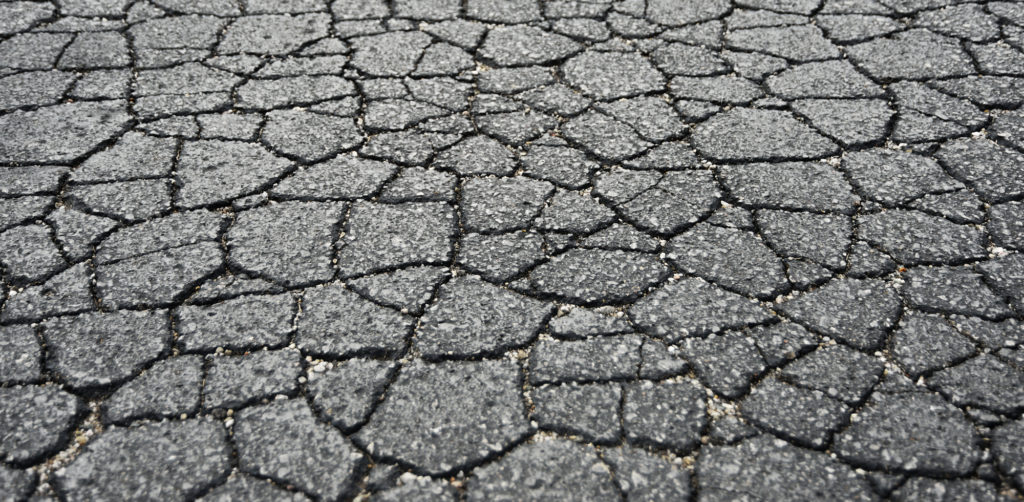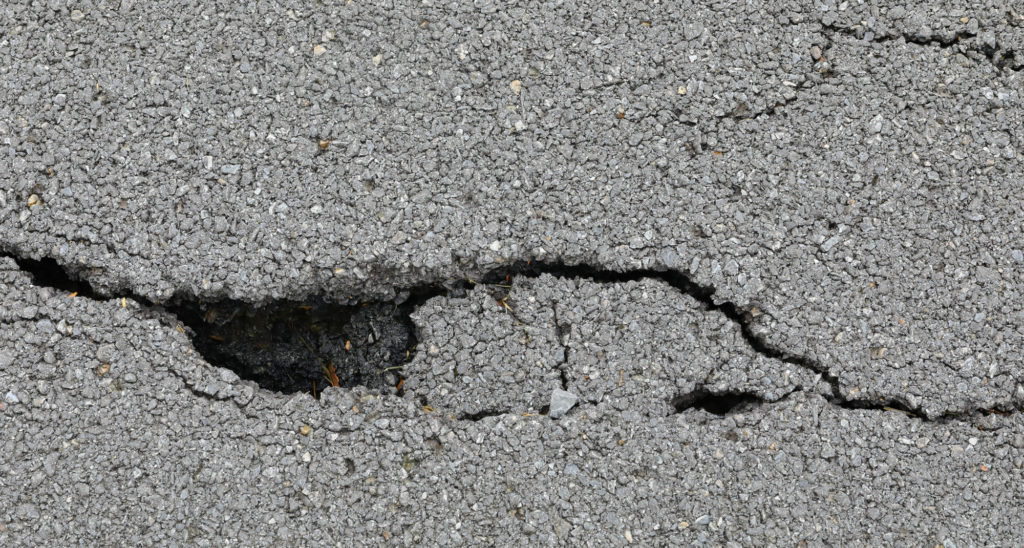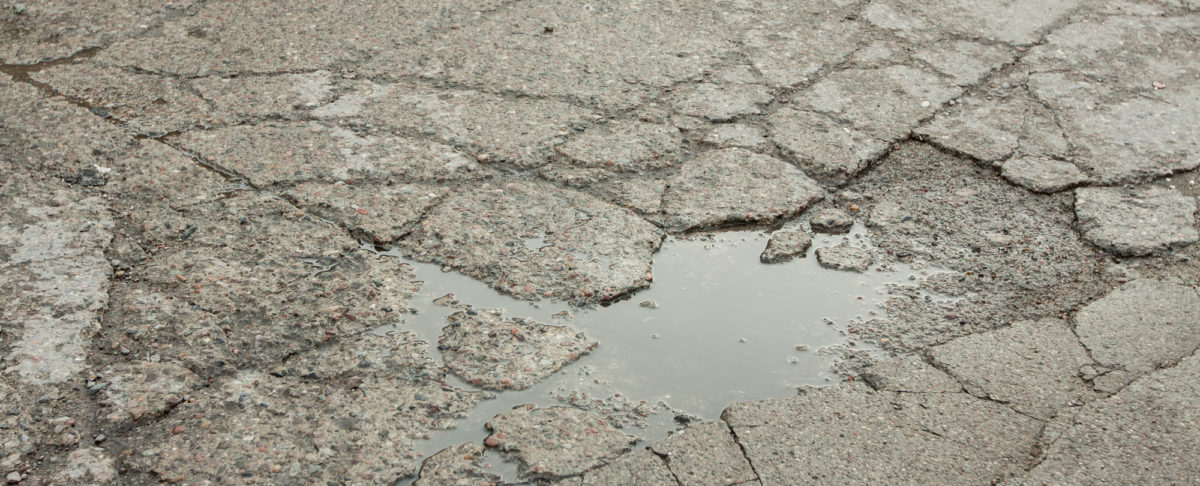If your asphalt driveway is looking a little worse for the wear, it may be time for some much-needed repairs or even a full replacement. If you live in a region where the weather can take a toll on your driveway, there are some signs of damage you should be aware of to properly protect your pavement and driveway.
Tackling minor damages straightaway is the best defense against the elements and a sound way to prevent further repairs on your asphalt driveway. Proper asphalt driveway maintenance can also help curb issues down the road.
Asphalt is a great paving material, especially in cold or wet environments like we have in the Midwest. It’s extremely durable and able to withstand a lot of wear and tear. However, over time some damage may be inevitable. Moreover, some asphalt driveways aren’t worth constant repairs and may need to be replaced. It could be cheaper to hire asphalt replacement specialists to give your driveway a fresh start.
But it may be difficult to know whether or not it’s time to start over. We’ve put together some helpful information to guide you toward the right next step. Here are some signs that it could be time for an asphalt driveway replacement.
Do You See Raveling?
Asphalt is made up of both binder and aggregate. However, this aggregate may become loose from its binding materials over time due to duress and weathering. If you notice loose gravel or pitting — you may be experiencing raveling on your asphalt driveway.
You can treat raveling right away and prevent further damage to your driveway. However, if it’s left untreated — raveling can have a significant impact on the structural integrity of your driveway. While it may start small, over time — larger pieces may begin to break away — which can be difficult to treat. If you notice raveling in your asphalt driveway, it’s important to address it immediately.
If you see larger pieces breaking off, it may be time for an asphalt driveway paving replacement.
Is There Standing Water?
Pools of water can be a sign of drainage issues. When properly installed and maintained, driveways should slope in a way that guides water runoff. However, over time — warping or damage may cause ruts or pits to form, which will create depressions in your asphalt pavement. Once these depressions form, runoff can become disrupted, and pools of water may form after rain, snowfall, or watering your yard.
Standing water is never a good sign on your property and can affect various areas. It may seep under the top layer of your asphalt driveway, and into any cracks that have formed as well. If this occurs during cold months, it may freeze and expand and contract damaged areas — furthering your problem. Sealcoating your asphalt driveway is a great defense, but may not stop all of the problems.
If you’re experiencing drainage issues, an asphalt driveway replacement may be the best move. Not only can drainage issues completely ruin a driveway, but they may also create issues in the foundations of your home.

Have You Heard of Alligator Cracks?
Strange as the name is, alligator cracks can be a devastating early symptom of a much-needed replacement driveway. An asphalt driveway may develop “alligator cracks,” which present themselves as overlapping cracks that resemble reptile skin.
Over time, these cracks will divide the pavement entirely, and are typically an indication that the subbase underneath the pavement is unsupported. Once the foundations are compromised, there’s little you can do to fix the driveway without constant repairs. So, if your driveway develops alligator cracking, it may be time to start anew and install a fresh subbase and topcoat.
Are There Large Cracks?
Obviously, significant cracking is certainly a sign of necessary changes. Both horizontal (transverse) and longitudinal cracks can mean serious issues are coming.
If your asphalt driveway has cracked, you need to deal with it quickly. One crack is bad enough, but multiple cracks can be indicative of severe issues under the surface. These large longitudinal cracks could be an early symptom of the “alligator cracks” we mentioned. Furthermore, the more cracks in your asphalt driveway — the more entry points for water in your driveway, which may further the cycle of damage.
It can be difficult to weigh the pros and cons of fixing or replacing. With that being said, it’s always better to start fresh with an asphalt installation company that has the experience and knowledge to lay the right foundations that prevent further maintenance issues than to keep repairing a “lost-cause” driveway.

What About Missing Pieces?
Large cracks that develop into alligator cracking can actually break away pieces of your driveway. No one wants large potholes on their asphalt. These areas are both damaging to vehicles and can also be dangerous for small children or residents that may fall or hurt themselves while walking across the driveway.
You may run across information about how to use cold-mix asphalt to repair potholes on your own. For smaller potholes, this may be a good short-term fix. However., it’s not a permanent solution for your driveway and may cause further damage if installed incorrectly.
If your asphalt driveway has potholes, it’s a sign of serious underlying issues. If you notice a pothole forming, we recommend calling a professional to evaluate the scale of the damage and possible replacement options that could help with your driveway.
How Long Has It Been?
Even the most professionally installed driveways with the very best materials will get old and wear away. Sometimes, it’s simply time to start fresh and retire your old pavement. Usually, around 10-15 years after your driveway installation, you may start to experience some of the symptoms we’ve discussed. Cracks may form, UV rays may discolor the surface, or pitting can occur from weathering and use.
While you can try to put out a handful of small fires on your own, it’s oftentimes better to start over and replace your old asphalt driveway. It’s an investment that will last if you choose the right driveway installation team.
Find the Right Partner
When your driveway has had enough, it’s time for you to partner with the right asphalt replacement company to start from scratch. Do your research and check credible third-party reviews. Make sure that the company you’re working with is well accredited and has the experience to offer incredible service to your property.




